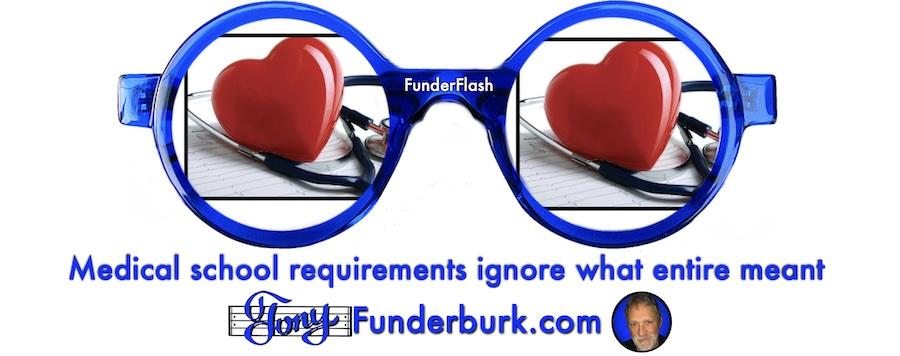Most western medicine doctors will probably talk about medical school requirements only if and when it’s complimentary to what they went through to get where they are. But once in a while, you can find an honest one.
Dr. Howard Luks shared this about medical school requirements:
“I’ve Been a Surgeon for 25 Years. Here’s What I Wish They Told Me in Medical School. Medical school taught me anatomy, physiology, and pathology. It taught me how to memorize, how to endure, and how to work longer hours than most people thought possible. But what it didn’t teach me was how to practice medicine with a full view of the human experience, mine included.
Here’s what I wish I had known from the start:
1. You’re not just treating anatomy. You’re treating a person.
The MRI is not the patient. And the labs aren’t the story. People bring fears, histories, habits, and hopes into every visit. So, learn to listen. Not just diagnose.
2. Health is more than disease management.
We were trained to treat disease, not to foster health. But so much of what patients need isn’t found in a prescription pad. It’s in their daily habits. And how they move, eat, sleep, and connect.
3. You can’t outrun burnout with productivity.
Medicine rewards stamina. But 80-hour weeks and constant pressure come at a cost. I learned the hard way that rest, boundaries, and life outside of medicine aren’t indulgences. In fact, they’re necessary for longevity in this field.
4. The best medicine is often “time,” not a scalpel.
When you’re trained to operate, everything looks like a surgical problem. But many of the best outcomes I’ve seen came from patience, movement, and education—not the OR.
5. The system is broken. You have to decide if you’ll break with it.
You’ll face pressures to treat charts, hit RVUs, and please insurers. But your real job is to be an advocate for your patients. And for your integrity. That may mean saying no to bad incentives.
6. Never stop learning. But know what’s worth learning.
You’ll never be done training. But the most valuable lessons won’t always come from journals. They’ll come from patients, from mistakes. And from stepping back far enough to see the bigger picture.
7. Who you are matters as much as what you know.
Clinical skill matters. But so does humility. So does presence. And so does being the kind of doctor your patient wants to talk to. Especially when they’re scared, in pain, or overwhelmed.
I’ve spent decades refining surgical technique. But the real mastery came from learning how to be a better human in the room. So, we need to teach that just as seriously as we teach how to suture.”
I certainly appreciate a doctor who will share something like that. Because it isn’t easy for someone who met all the medical school requirements, and makes plenty of money going the pharmaceutical route, to go against that grain. So when doctors do, it’s important for us to support them when we can.
Now, I can’t prove, beyond the shadow of a doubt, that a good attitude and joy actually help you stay healthy. But I bet you can’t prove they don’t either. And that’s why I say things like…
Wake up with joy in the morning And a wink and a smile.
Then show your love to your neighbor
As you walk every mile.
And show the light of the Spirit
Wherever you may go.
And when you wake in the morning,
Your joy will start to flow. © 2010
Get my Tony’s Daily Devotional , my ongoing Devotional that’s Logical AND Emotional. Because then the flashes of light I share on my website come right to your inbox. So you can spend your valuable time reading and listening instead of searching. And, to show my sincere appreciation for your time and attention, I’ll send you download links to books and music, right away. Kids from 3 to 103 can enjoy these fun goodies.
Stay tuned,


